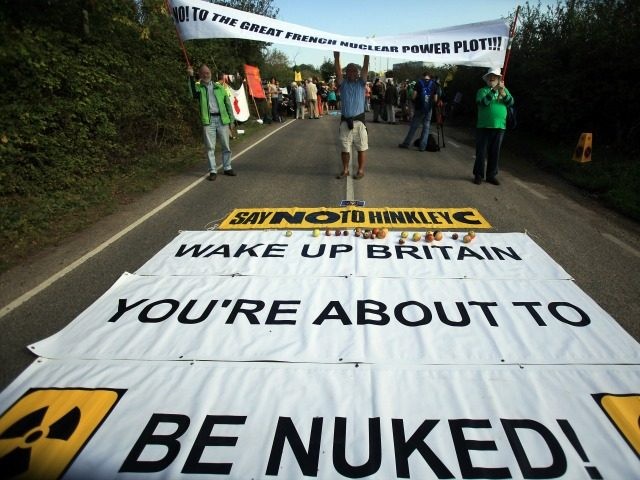(REUTERS) – British Prime Minister Theresa May was concerned about the security implications of a planned Chinese investment in the new Hinkley Point nuclear plant and intervened personally to delay the project, a former colleague and a source said on Saturday.
The plan by France’s EDF (EDF.PA) to build two reactors with financial backing from a Chinese state-owned company was championed by May’s predecessor David Cameron as a sign of Britain’s openness to foreign investment.
But just hours before a signing ceremony was due to take place on Friday, May’s new government said it would review the project again, raising concerns that Britain’s approach to infrastructure deals, energy supply and foreign investment may be changing.
The decision could prove a test for May, with any attempt to renegotiate the terms of the project potentially straining relations with Paris and Beijing at a time when Britain is seeking to build trade deals following the country’s vote to leave the European Union.
“When we were in government Theresa May was quite clear she was unhappy about the rather gung-ho approach to Chinese investment that we had,” Vince Cable, Britain’s former business secretary, told BBC Radio.
He later told Sky News her concerns over China’s involvement were linked to national security. “This was an issue that was raised in general but it was also raised specifically in relation to Hinkley,” he said.
May alerted French President Francois Hollande to her intention, a government source told Reuters. She explained to him that she would need time to consider the project when they met in Paris nine days ago and when they spoke in a phone call. “They agreed on the timetable,” the source said.
But state-controlled utility EDF, which went through a bruising boardroom battle in order to agree backing for the project on Thursday, said it had no advance warning of the review.
Britain and EDF first reached a broad commercial agreement on the project in 2013. China got involved two years later when Downing Street laid on a state visit for President Xi Jinping, designed to cement a “Golden Era” of relations between the two countries.
Cameron said he wanted to build a “lasting friendship” with Beijing and George Osborne, his chancellor, pitched Britain as China’s “best partner in the West” even as other Western nations took a more cautious view of Chinese investment.
SECURITY CONCERNS
Since taking office on July 13, May has been keen to state that Britain remains open for business following the vote to leave the EU. But she has also said the government should be able to step in to defend a key sector from foreign ownership.
China General Nuclear Power Corp (CGN) was set to hold a 33 percent stake in the Hinkley Point project, paving the way for the company to lead another project in Britain that would use Chinese nuclear technology.
Last year, Nick Timothy, May’s joint chief of staff, said security experts were worried the state-owned Chinese group would have access to computer systems that would allow it to shut down Britain’s energy production.
The two new reactors at Hinkley Point, in southwest England, would provide about 7 percent of Britain’s electricity, helping to fill a supply gap left by the planned closure of coal plants by 2025.
Although EDF and CGN are responsible for the 18-billion-pound ($24 billion) cost of the project, Britain has committed to paying a minimum price for the power generated for 35 years.
Critics, including some British lawmakers and academics, say the country would be overpaying at that minimum price, which equates to double current market levels.
China General Nuclear said on Saturday it respected the decision of the new British government to take the time needed to familiarise itself with the programme.
A decision is now due by the autumn, possibly as early as September when the government is also due to give the go-ahead for a plan to expand either Heathrow or Gatwick airport, another major infrastructure project that has been delayed.
May’s office did not comment on Saturday, but the government has said it is right that it should consider all component parts of the Hinkley Point project before reaching a final decision.
(Writing by Kate Holton; Editing by Alexander Smith and Nerys Avery)

COMMENTS
Please let us know if you're having issues with commenting.